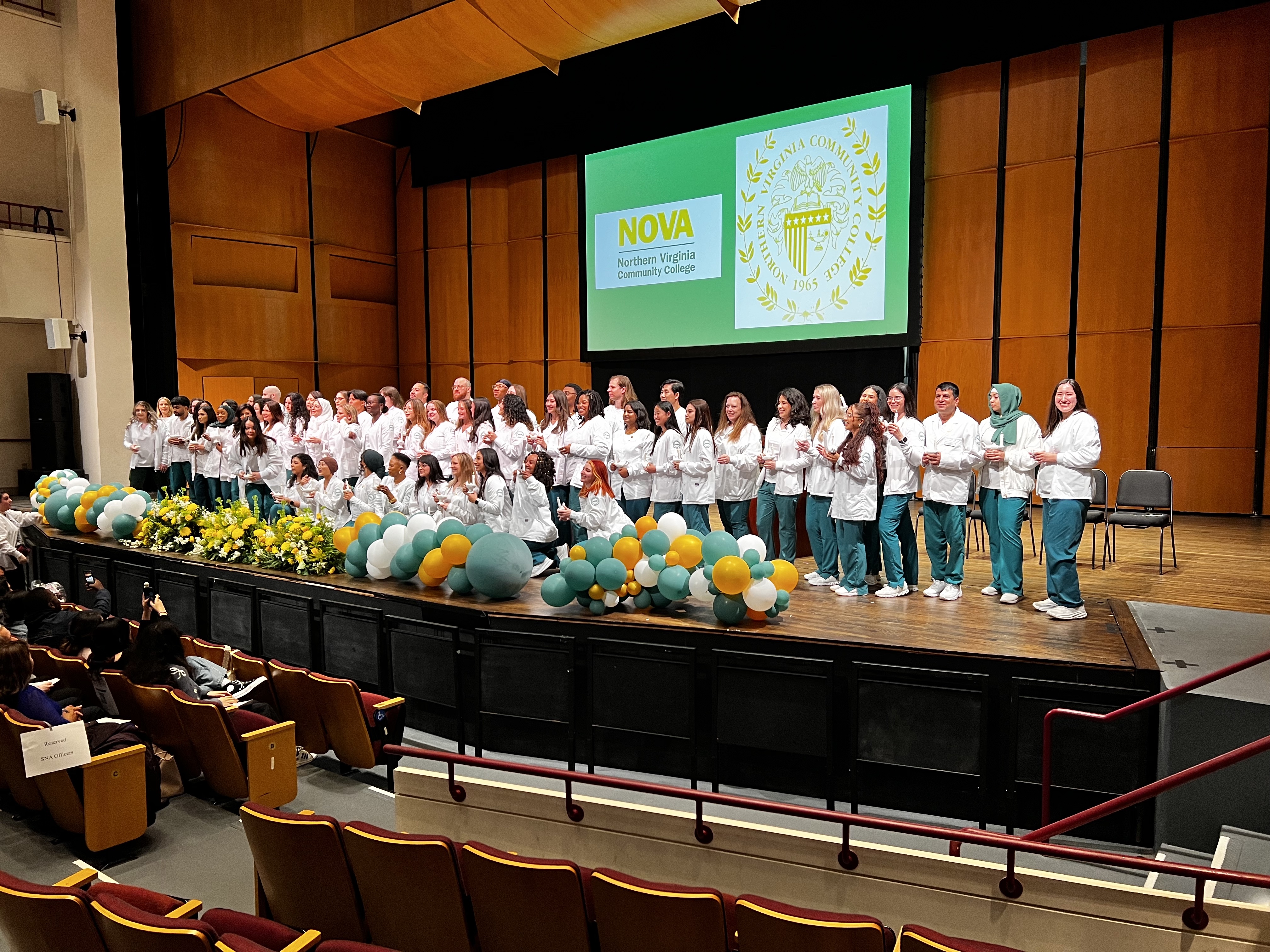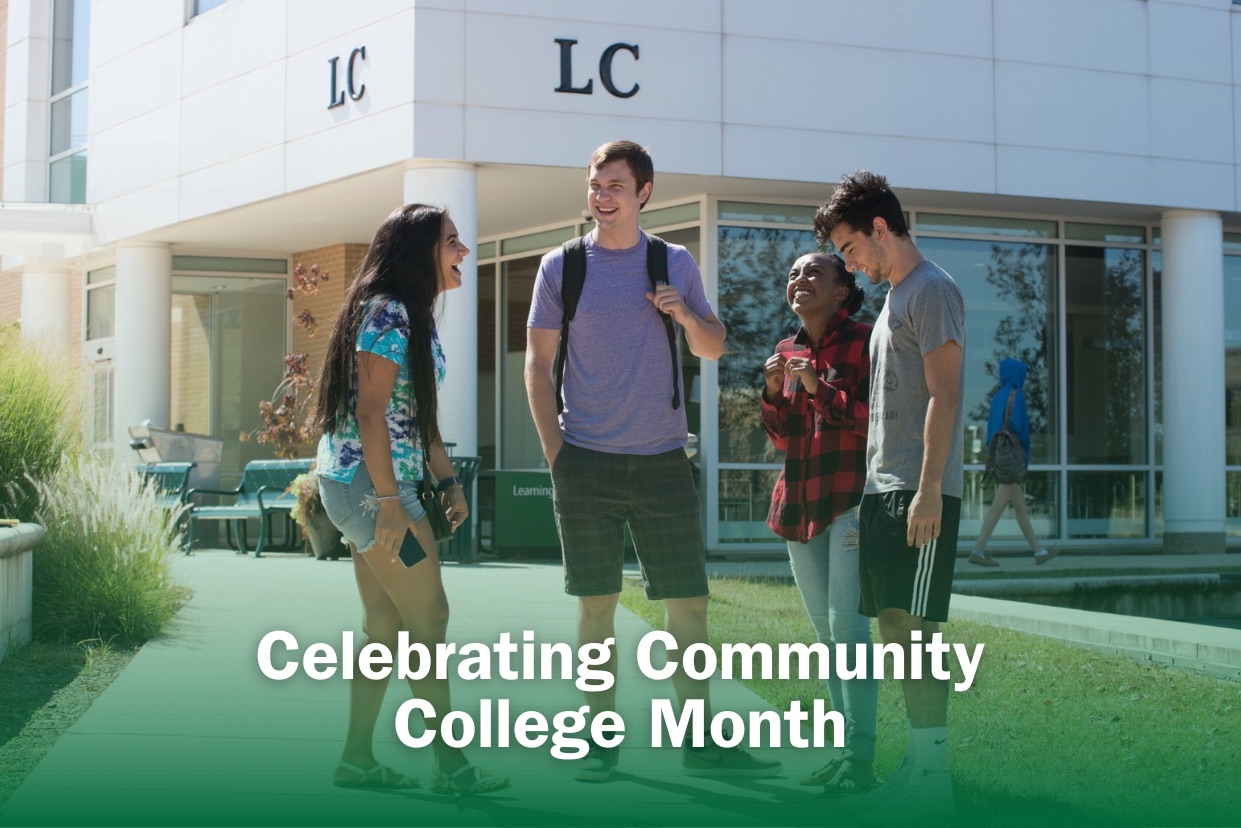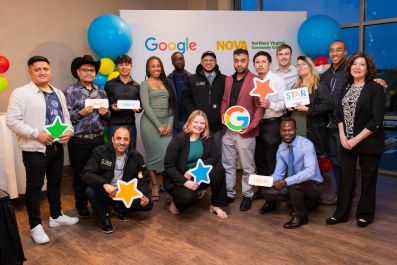No press releases found.
Try starting over, or contact us if you don’t see what you’re looking for—we’re here to support you.
Try starting over, or contact us if you don’t see what you’re looking for—we’re here to support you.

Meet the grads: Hear from a few of our class of 2025 graduates!
May 23, 2025

NOVA has teamed up with George Washington University (GW) on an innovative project called LAiSER — Leveraging AI for Skills Extraction & Research.
April 29, 2025

In honor of Community College month, let’s celebrate NOVA’s outstanding interns. Read on to discover their stories, and watch as they share their inspiring journeys firsthand.
April 25, 2025

NOVA’s Google STAR program celebrated its fifth and largest cohort — 13 graduates — at a graduation ceremony at Sterling’s Cascades Celebration and Corporate Event Center on April 2. The Skilled Trades and Readiness (STAR) graduates, who could hardly contain their excitement, were joined by family, friends and Google and NOVA leaders who proudly shared in the moment.
April 15, 2025

A $250,000 grant, awarded by the State Council of Higher Education for Virginia (SCHEV) to enhance AI instruction in higher education, has brought together NOVA, Virginia State University (VSU) and Brightpoint Community College.
February 21, 2025

This month, NOVA Online celebrates 50 years of innovation and dedication to expanding educational opportunities. What began in January 1975 as the Extended Learning Institute (ELI) — in a converted warehouse, no less — has transformed into a leading model of online education, supporting students across Virginia and beyond.
January 24, 2025

Krystle Addy is testament to the transformative power of the Metallica Scholars Initiative (MSI). Originally from Liberia, Krystle found work as a certified nurse aide (CNA) at a home health locally. But with the amazing support of Metallica’s — yes, the band!
December 3, 2024

When Jeanette Whitehead moved from Pensacola, Fla., to Northern Virginia five years ago, she wasn’t anticipating a major career shift, too. Trained as a nail technician in Florida, she found it difficult to break into the industry in Virginia, which requires significantly more training hours for license reciprocity. Faced with the prospect of additional training for a job she’d already mastered, Whitehead decided to return to school.
November 22, 2024

Marine Corps reservist Eric Frank is building his future at NOVA, studying mechanical engineering while balancing work and family. He hopes to transfer to George Mason University and pursue a career in automotive development.
November 15, 2024

NOVA Workforce celebrated the graduation of six Licensed Practical Nurse (LPN) students in a pinning ceremony at the Loudoun Campus. These graduates are the first cohort of NOVA’s new LPN program, launched to address regional healthcare shortages. The event included speeches, pinning by family members, and heartfelt appreciation for their mentor, Amanda Wills.
November 11, 2024
Featured articles will be archived after one year. If you are looking for an archived featured article, please contact wsdm@nvcc.edu.